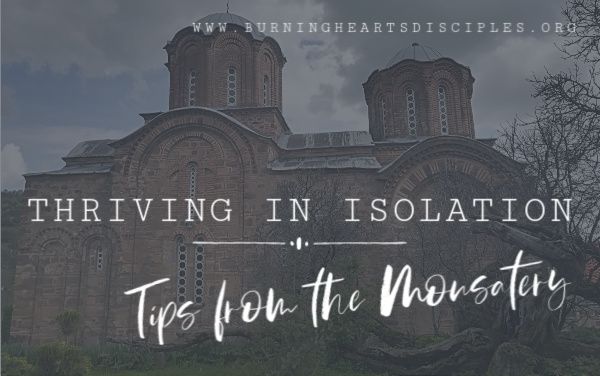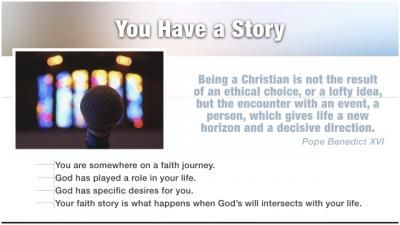The Making Disciples Today Blog has reflections to help you grow in your journey of missionary discipleship, reviews on recommended Catholic evangelization resources, and practical insight on how to evangelize in your daily life.
- Details
- Written by Mike Nelson
Alongside our front porch is a patch of ground that, for much of the year, we struggle to keep the weeds out of. They grow, we pull them out, they come back, and on and on it goes. But within that patch are plants that lie dormant for much of the year, yet somehow spring back to life.
They are our calla lilies, plants whose green shoots spring determinedly from the ground and soon produce lovely white blooms that last, well, a few weeks or so. Then the flowers begin to shrivel and fade. The stems falter and the calla lilies, it would seem, die— until the following year. They reappear, to again share their God-given beauty with the world.
That bears consideration during this Easter season, a season that, we are told year after year, is one of hope, of promise, of new life. Given the challenges and obstacles and even hardships that life presents in varying sizes and degrees, that message can be difficult to hear, much less accept.
- Details
- Written by Kristin Bird
What can monastery life can teach us about how to thrive during "social distancing"?
We reached out to some retreat masters, monks, and monasteries of the Catholic tradition for their wisdom on how to handle isolation and social distancing.
These folks - who have intentionally chosen varying levels of isolation and distancing for a variety of reasons - had some incredibly helpful insights for those of us who are struggling with (and didn't choose) this life we're finding ourselves living today.
- Details
- Written by Josh Noem
Cultural Symbols of Important Christian Holidays
Someone at work recently asked me if the Easter bunny still visits our house (our youngest is in third grade). I replied, “Our kids are pretty smart. They know when they have a good thing going, so they don’t ask unnecessary questions.”
In other words, we have an unspoken “don’t ask, don’t tell” policy. While we don’t go over the top to encourage the fiction (such as the elf on a shelf nonsense), we also preserve it by hiding gifts and baskets.
We do our utmost to ensure that the most important realities of the Christian holidays are not overshadowed by these symbolic characters—our kids are crystal clear about what these Christian feasts mean for our faith and religious practice. The Easter bunny and Santa are obvious side-shows to our observance of Jesus’ birth, Death, and Resurrection.
We invest a lot of time and energy into Advent and Lent, so when Christmas and Easter come around, we are prepared to celebrate them properly and whole-heartedly. Those preparation seasons include more intensive moments of family prayer (10-15 minutes of quiet prayer individually each night before our normal night prayers), and intentional acts of almsgiving and fasting. In comparison, visits by the Easter bunny and Santa Claus end up feeling like a nice metaphor.
Recently, I was caught writing clues for the scavenger hunt created by the Easter bunny to lead each child to their basket. The kids simply noted that they saw me writing clues, and left it at that. I was contemplating this and came to an important conclusion.
- Details
- Written by Kristin Bird
The most valuable way to share our faith is by telling our own story, our testimony of the difference Jesus Christ has made in our lives, in a firsthand account. Can you idenitfy the key elements of your personal journey to discipleship? Can you articulat what difference Jesus has made in your life?
We've collated and created some tools to help you expand the role of story in evangelizing including some reflection guides, practical tips, and suggestions on how to think about both incorporating story in a general way and sharing your own story.





